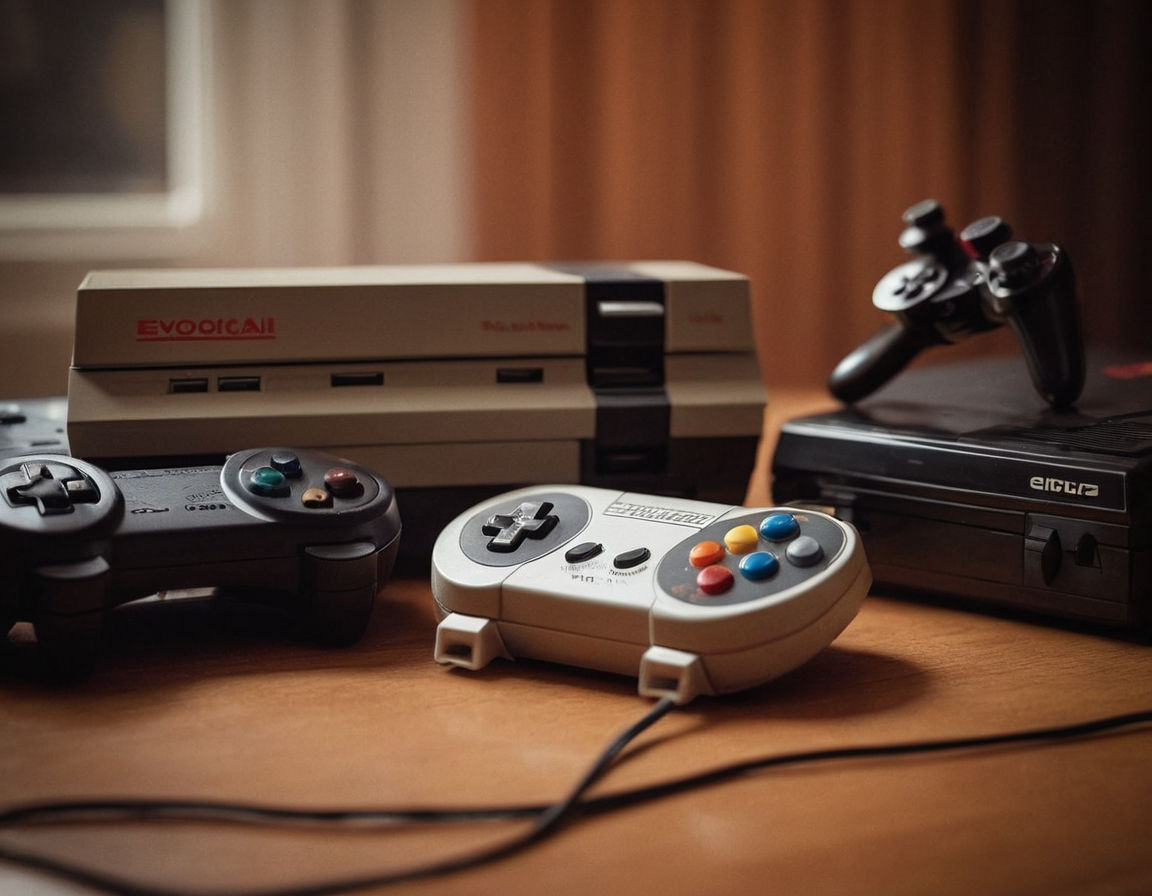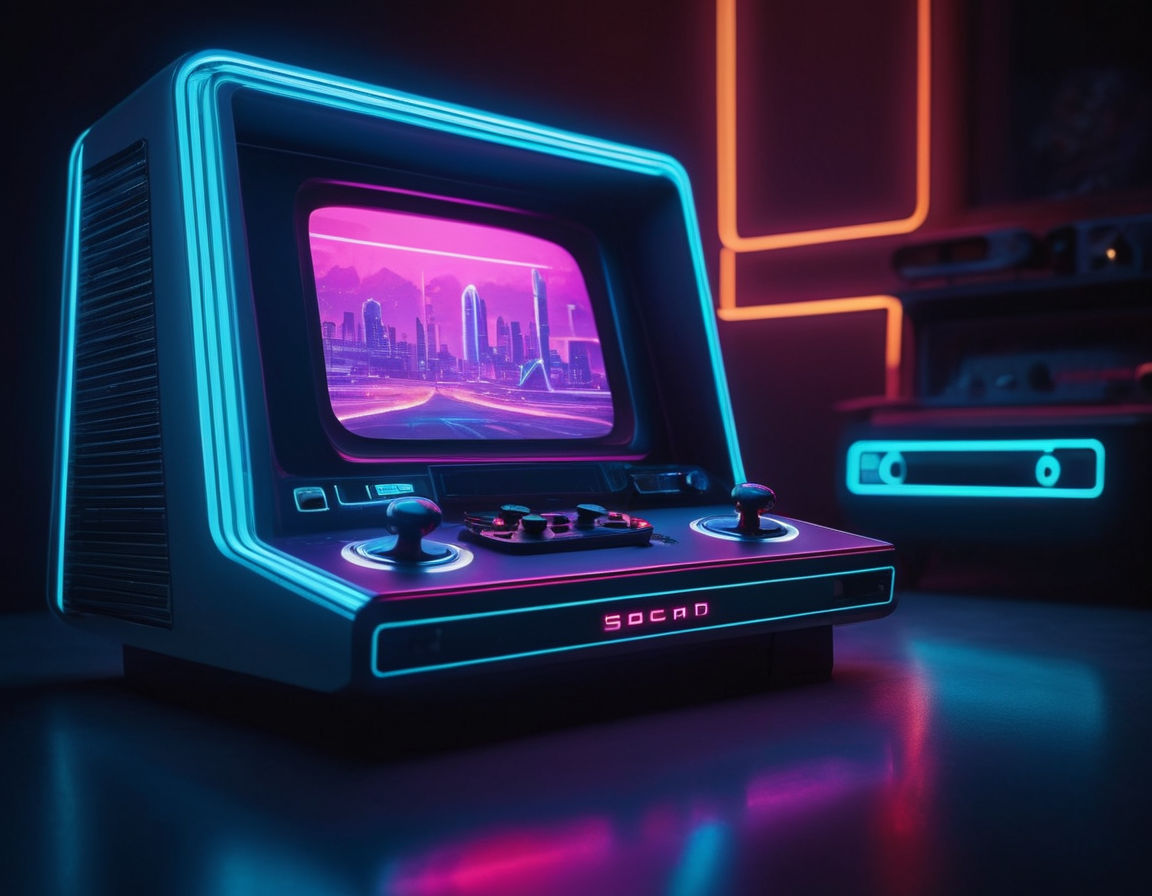Introduction
In recent years, the world of gaming has witnessed a remarkable phenomenon - the resurgence of retro gaming. Enthusiasts and newcomers alike are embracing the charm of classic games and retro consoles, sparking a nostalgic revival in the gaming industry. This trend has been fueled by a growing appreciation for the simplicity, innovation, and timeless fun that retro gaming offers. From pixelated visuals to iconic soundtracks, old-school gaming has a unique appeal that continues to capture the hearts of players of all ages.
The Appeal of Retro Gaming
Retro gaming holds a special place in the hearts of many gamers due to the powerful nostalgia it evokes. Playing classic games can transport players back to a simpler time, triggering fond memories of childhood and hours spent in front of vintage consoles. The familiarity of retro games, coupled with their straightforward gameplay mechanics, offers a welcome break from the complexity of modern gaming experiences.
Moreover, the appeal of retro gaming lies in the distinctive gameplay experience that old-school games provide. Unlike contemporary titles that boast cutting-edge graphics and intricate narratives, retro games focus on pure gameplay. The simplicity of retro titles challenges players to rely on their skills and reflexes rather than flashy visuals, offering a refreshing and stripped-down gaming experience.
Dive into Nostalgia
Nostalgia plays a pivotal role in the resurgence of retro gaming.
Revisiting classic games can transport players back to memorable moments from their past.
The emotional connection forged through nostalgia enhances the overall gaming experience.
Unique Gameplay Experience
Retro games prioritize gameplay over graphics.
Simple controls and gameplay mechanics make retro games accessible to players of all skill levels.
The challenge of mastering classic games adds a layer of depth and satisfaction to the gaming experience.
Evolution of Retro Consoles
The history of retro consoles is a fascinating journey that has shaped the landscape of gaming as we know it today. From the early days of home entertainment systems to the rise of iconic consoles, the evolution of retro gaming hardware has been marked by innovation and cultural impact. These pioneering consoles not only laid the foundation for modern gaming technology but also left an indelible mark on the industry.
Exploring the evolution of retro consoles offers a glimpse into the progression of gaming design and technology. Each iconic console, from the Atari 2600 to the Nintendo Entertainment System (NES), contributed unique innovations that paved the way for future generations of gaming hardware. These retro consoles not only introduced groundbreaking features but also established enduring legacies that continue to influence contemporary gaming trends.

Iconic Consoles
Atari 2600
Introduced in 1977, the Atari 2600 revolutionized home gaming.
Iconic titles like "Pac-Man" and "Space Invaders" defined the console's success.
Nintendo Entertainment System (NES)
Launched in 1985, the NES became a cultural phenomenon.
Classics such as "Super Mario Bros." and "The Legend of Zelda" helped define the console's legacy.
Sega Genesis
Sega's 16-bit console, released in 1988, rivaled the NES.
Popular titles like "Sonic the Hedgehog" showcased the console's capabilities.
By delving into the evolution of retro consoles, gamers can gain a deeper appreciation for the roots of modern gaming and the enduring influence of classic hardware. The nostalgia and innovation embodied by retro consoles continue to captivate audiences and fuel the resurgence of retro gaming in today's diverse gaming landscape.
Classic Games vs. Modern Titles
When comparing classic games to modern titles, it's easy to spot some fundamental differences in gameplay mechanics. Classic games, often referred to as retro games, are known for their simplicity in controls and graphics. These games focus more on gameplay and storytelling rather than on high-definition graphics and elaborate control schemes. On the other hand, modern titles tend to prioritize realistic graphics, complex gameplay mechanics, and online multiplayer features.
Despite the vast advancements in technology that have enabled the creation of visually stunning and immersive modern games, retro games continue to maintain a strong following. The enduring popularity of retro games can be attributed to several factors. Firstly, many players appreciate the straightforward gameplay and nostalgic feel of classic games. Additionally, retro games often evoke a sense of simplicity and charm that is sometimes missing in the complexity of modern titles. The nostalgia factor also plays a significant role, as older players enjoy revisiting the games of their youth, while younger generations are curious to experience the roots of modern gaming.
Community and Culture
The retro gaming community is a vibrant and passionate group of individuals who share a deep love for classic games. This community is built on a foundation of nostalgia, shared experiences, and a mutual appreciation for the history of gaming. Retro gaming enthusiasts often gather at conventions, online forums, and gaming events to celebrate their favorite games and consoles.
Nostalgia is a powerful force within the retro gaming community, as many players associate classic games with fond memories of their childhood or early gaming experiences. The shared nostalgia for games like Super Mario Bros., The Legend of Zelda, or Pac-Man creates a strong sense of camaraderie among retro gamers. Moreover, the culture surrounding classic games is characterized by a spirit of preservation, with many enthusiasts collecting vintage consoles, cartridges, and memorabilia to keep the history of gaming alive.
Impact on Modern Gaming
Retro gaming culture influences modern game development trends.
Nostalgic elements often appear in new games to appeal to a broader audience.
The community fosters a supportive environment for indie developers creating retro-inspired titles.
Preservation and Remastering

Preserving retro games is essential for ensuring that future generations can experience the roots of gaming and appreciate the evolution of the medium. Retro games hold historical significance, representing important milestones in the development of video games as an art form. Without preservation efforts, many classic games risk being lost to time or becoming unplayable due to outdated hardware.
The trend of remastering old-school titles for modern platforms has gained significant momentum in recent years. Developers revisit classic games, enhancing graphics, updating controls, and optimizing gameplay for new consoles or PC systems. Remastered versions allow both veteran players and newcomers to experience beloved retro titles in a fresh light, breathing new life into classic games while retaining their original charm.
Benefits of Remastering
Introduces classic games to a new audience.
Improves accessibility for players on modern platforms.
Preserves the legacy of iconic titles for future generations.
Future of Retro Gaming
Retro gaming, with its nostalgic charm and timeless appeal, is experiencing a significant revival in the gaming industry. As technology continues to advance at a rapid pace, the future of retro gaming appears to be bright, with several emerging trends signaling the continued popularity of classic games.
Predicting Future Trends of Retro Gaming
Enhanced Remakes and Remasters:
Game developers are increasingly investing in enhancing classic titles with updated graphics, improved gameplay mechanics, and additional content. This trend of remakes and remasters breathes new life into beloved retro games, attracting both old fans and a new generation of gamers.
Cross-Platform Compatibility:
With the rise of cloud gaming and digital platforms, retro games are becoming more accessible across various devices. Players can now enjoy classic titles on modern consoles, PCs, and even mobile devices, making retro gaming a versatile and inclusive experience.
Nostalgia-Inspired Game Design:
Game developers are tapping into nostalgia to create new titles that capture the essence of classic gaming experiences. From pixel art graphics to chiptune soundtracks, these modern games pay homage to the past while incorporating contemporary gameplay mechanics, catering to nostalgic gamers and enthusiasts.
Impact of Nostalgia on the Gaming Industry's Direction
Nostalgia plays a pivotal role in shaping the direction of the gaming industry, influencing game development, marketing strategies, and consumer preferences. The emotional connection that gamers have with retro games continues to drive the resurgence of classic titles and retro consoles.
Consumer Demand for Retro Content:
The growing demand for retro content has prompted developers to re-release classic games, create retro-inspired merchandise, and develop retro-themed events. This consumer-driven trend highlights the enduring appeal of old-school gaming and the market opportunities it presents.
Cultural Significance of Retro Gaming:
Retro gaming has become more than just a hobby; it has evolved into a cultural phenomenon that celebrates gaming history and heritage. As gamers reminisce about their favorite childhood classics, the industry responds by preserving gaming legacies and exploring new ways to honor the past.
Shift towards Retro-Inclusive Gaming Communities:
Gaming communities dedicated to retro gaming are thriving, fostering a sense of camaraderie among enthusiasts who share a passion for classic games. These communities not only provide a platform for nostalgia-driven discussions but also contribute to the preservation and promotion of retro gaming culture.
In conclusion, the future of retro gaming looks promising, fueled by a combination of technological advancements, nostalgic appeal, and a growing appreciation for gaming history. As we look ahead, it's clear that retro gaming will continue to hold a special place in the hearts of gamers worldwide, shaping the industry's direction and enriching the gaming landscape with a touch of nostalgia.




